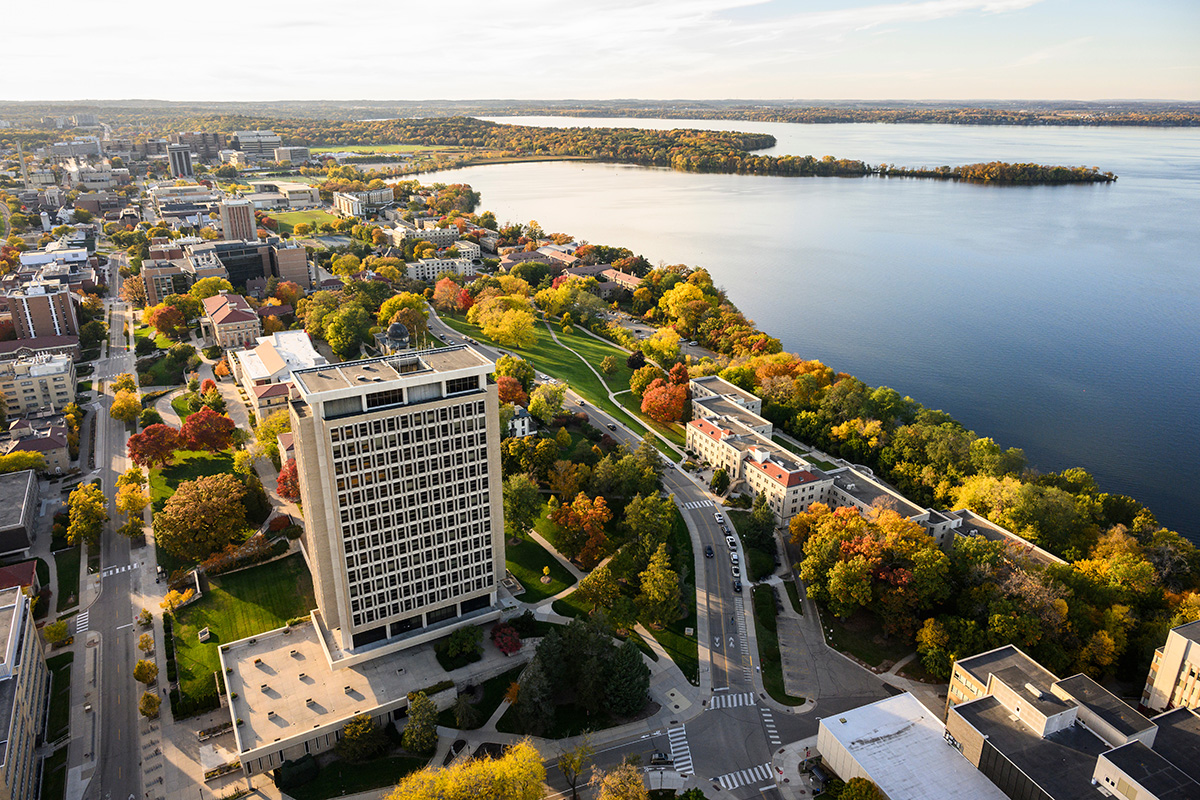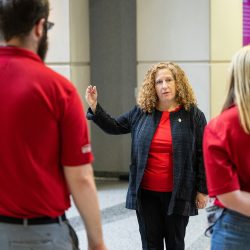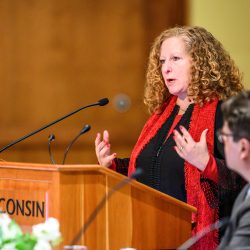A Deal to Move Forward
University leaders work out a compromise with the state legislature.

Chancellor Mnookin says the compromise will permit the university to hold onto its core values, including a firm commitment to diversity and belonging. Jeff Miller
In December, the UW System Board of Regents approved an agreement between the Universities of Wisconsin and state legislative leadership that moves forward critical priorities of UW campuses across Wisconsin, including UW–Madison.
Following months of negotiations, leaders settled on terms that include releasing a previously approved pay raise for employees; $32 million in state funding that was withheld by legislators in the recent state budget process; and updates and repairs to buildings at UW–Madison and other campuses. Following approval by the legislature and governor, UW–Madison would also receive $197 million toward a new engineering building, widely supported by business leaders across the state. This was the number one legislative priority of campus and the Universities of Wisconsin.
University leadership agreed to several steps requested by legislators, including a temporary cap on positions related to diversity, equity, and inclusion (DEI); a realignment, over the next two years, of about 40 DEI positions throughout the system to focus more directly on academic and student success; and a systemwide cap on hiring administrative positions for three years.
The Universities of Wisconsin will also support potential legislation under which UW–Madison would admit the top 5 percent of graduates from Wisconsin high schools, based on their grade-point-average ranking. This represents a renewed commitment to Wisconsin’s top scholars and signals that there is a place for them at UW–Madison.
“Compromise is never easy, and this compromise is far from perfect, but I continue to believe this pathway will permit us to hold onto our core values — including our firm commitments to diversity and belonging — while also allowing us to move forward,” says UW–Madison chancellor Jennifer Mnookin. “At the same time, we can and must remain steadfast in our commitment to serving students of all backgrounds, including those underserved by higher education, and those who hold a broad range of backgrounds and perspectives. We must also continue to seek ways we can further improve this work to best serve our underrepresented communities.”
Published in the Spring 2024 issue



Comments
No comments posted yet.